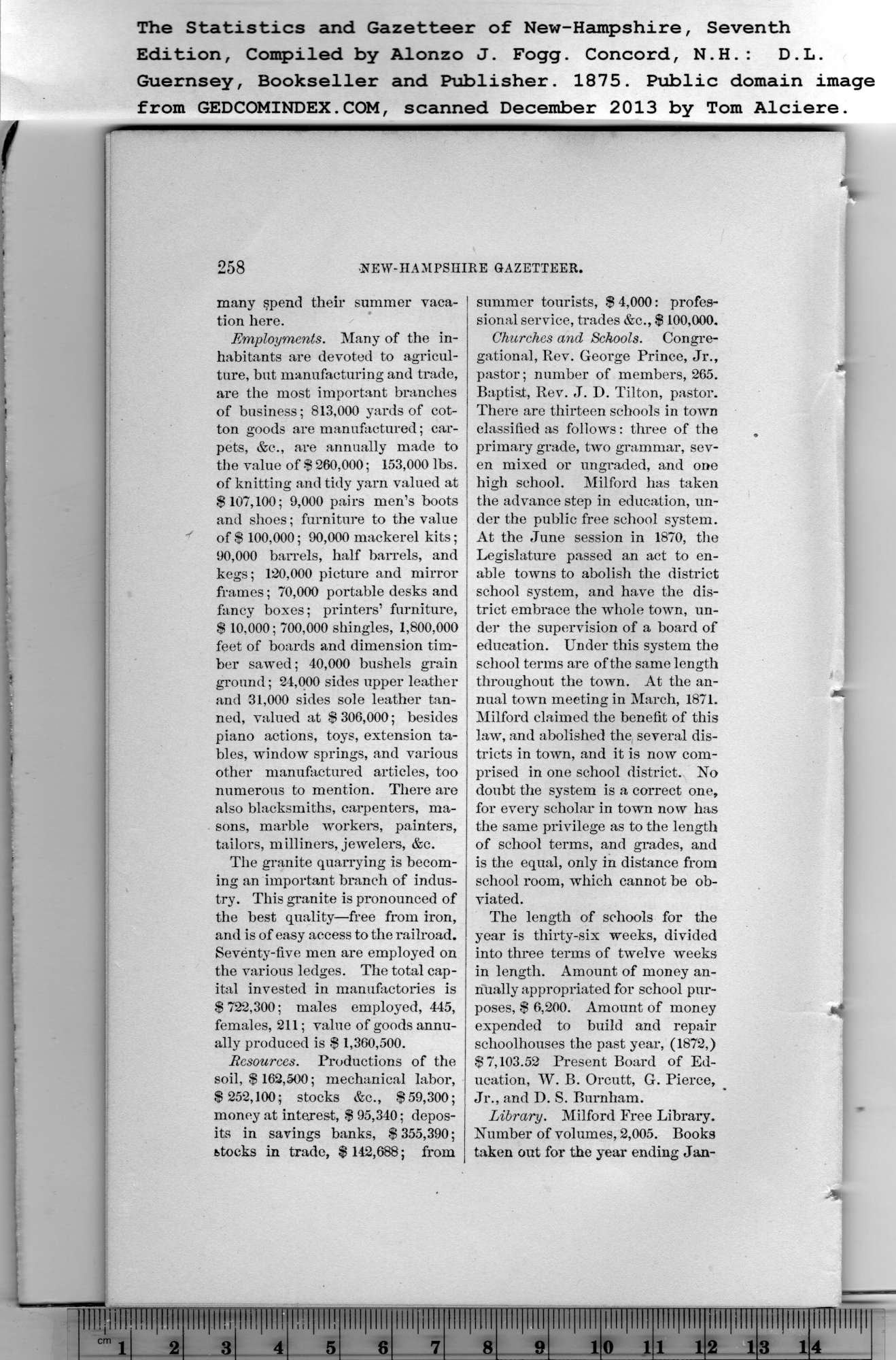|
many spend their summer vaca-
tion here.
Employments. Many of the in-
habitants are devoted to agricul-
ture, but manufacturing and trade,
are the most important branches
of business; 813,000 yards of cot-
ton goods are manufactured; car-
pets, &c., are annually made to
the value of $ 260,000; 153,000 lbs.
of knitting and tidy yarn valued at
$107,100; 9,000 pairs men’s boots
and shoes; furniture to the value
of $ 100,000; 90,000 mackerel kits;
90,000 barrels, half barrels, and
kegs; 120,000 picture and mirror
frames; 70,000 portable desks and
fancy boxes; printers’ furniture,
$ 10,000; 700,000 shingles, 1,800,000
feet of boards and dimension tim-
ber sawed; 40,000 bushels grain
ground; 24,000 sides upper leather
and 31,000 sides sole leather tan-
ned, valued at $ 306,000; besides
piano actions, toys, extension ta-
bles, window springs, and various
other manufactured articles, too
numerous to mention. There are
also blacksmiths, carpenters, ma-
sons, marble workers, painters,
tailors, milliners, jewelers, &c.
The granite quarrying is becom-
ing an important branch of indus-
try. This granite is pronounced of
the best quality—free from iron,
and is of easy access to the railroad.
Seventy-five men are employed on
the various ledges. The total cap-
ital invested in manufactories is
$ 722,300; males employed, 445,
females, 211; value of goods annu-
ally produced is $ 1,360,500.
Resources. Productions of the
soil, $ 162,500; mechanical labor,
$ 252,100; stocks &c., $59,300;
money at interest, $ 95,340; depos-
its in savings banks, $ 355,390;
stocks in trade, $ 142,688; from
summer tourists, $ 4,000: profes-
sional service, trades &c., $ 100,000. |
Churches and Schools. Congre-
gational, Rev. George Prince, Jr.,
pastor; number of members, 265.
Baptist, Rev. J. D. Tilton, pastor.
There are thirteen schools in town
classified as follows: three of the
primary grade, two grammar, sev-
en mixed or ungi'aded, and one
high school. Milford has taken
the advance step in education, un-
der the public free school system.
At the June session in 1870, the
Legislature passed an act to en-
able towns to abolish the district
school system, and have the dis-
trict embrace the whole town, un-
der the supervision of a hoard of
education. Under this system the
school terms are of the same length
throughout the town. At the an-
nual town meeting in March, 1871.
Milford claimed the benefit of this
law, and abolished the several dis-
tricts in town, and it is now com-
prised in one school district. No
doubt the system is a correct one,
for every scholar in town now lias
the same privilege as to the length
of school terms, and grades, and
is the equal, only in distance from
school room, which cannot be ob-
viated.
The length of schools for the
year is thirty-six weeks, divided
into three terms of twelve weeks
in length. Amount of money an-
nually appropriated for school pur-
poses, $ 6,200. Amount of money
expended to build and repair
schoolhouses the past year, (1872,)
$7,103.52 Present Board of Ed-
ucation, W. B. Orcutt, G. Pierce,
Jr., and D. S. Burnham.
Library. Milford Free Library.
Number of volumes, 2,005. Books
taken out for the year ending Jan- |
